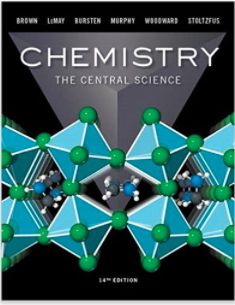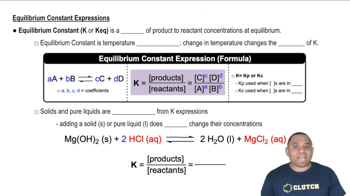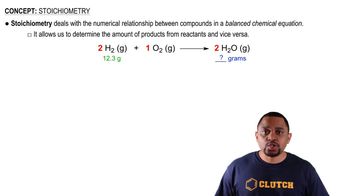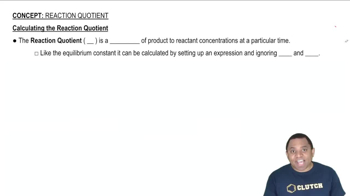Textbook Question
At 1000 K, 𝐾𝑝 = 1.85 for the reaction SO2(𝑔) + 12 O2(𝑔) ⇌ SO3(𝑔) (c) What is the value of 𝐾𝑐 for the reaction in part (b)?

 Verified step by step guidance
Verified step by step guidance



At 1000 K, 𝐾𝑝 = 1.85 for the reaction SO2(𝑔) + 12 O2(𝑔) ⇌ SO3(𝑔) (c) What is the value of 𝐾𝑐 for the reaction in part (b)?
Consider the following equilibrium: 2 H2(g) + S2(g) ⇌ 2 H2S(g) Kc = 1.08 × 107 at 700°C (b) Does the equilibrium mixture contain mostly H2 and S2 or mostly H2S?